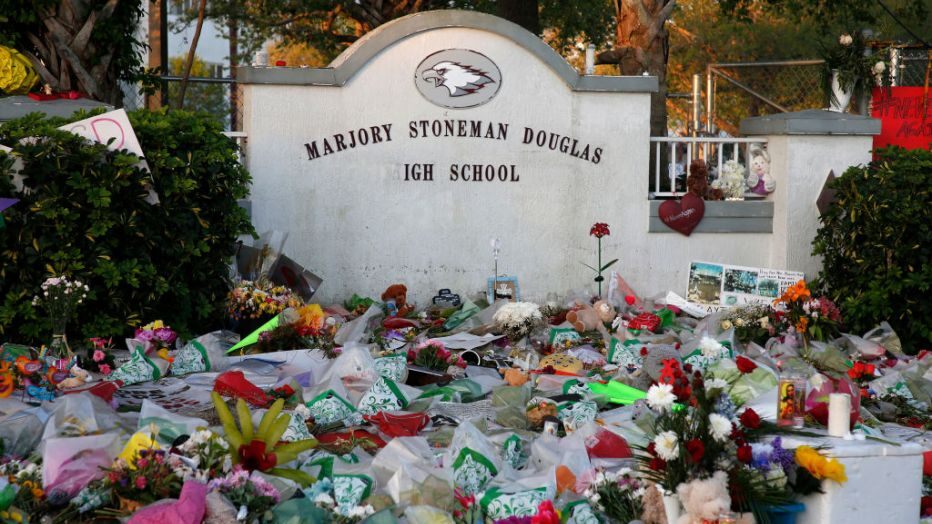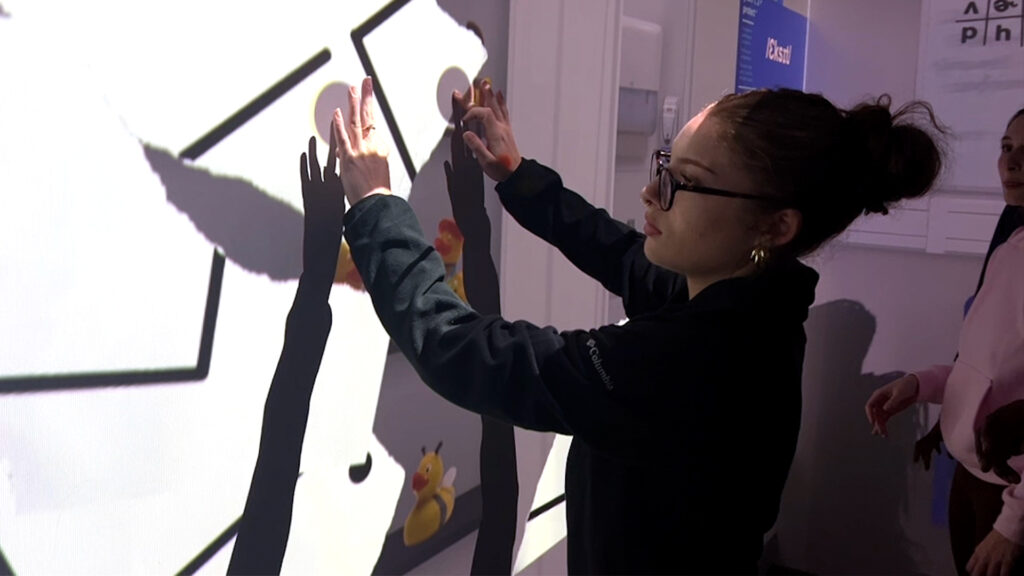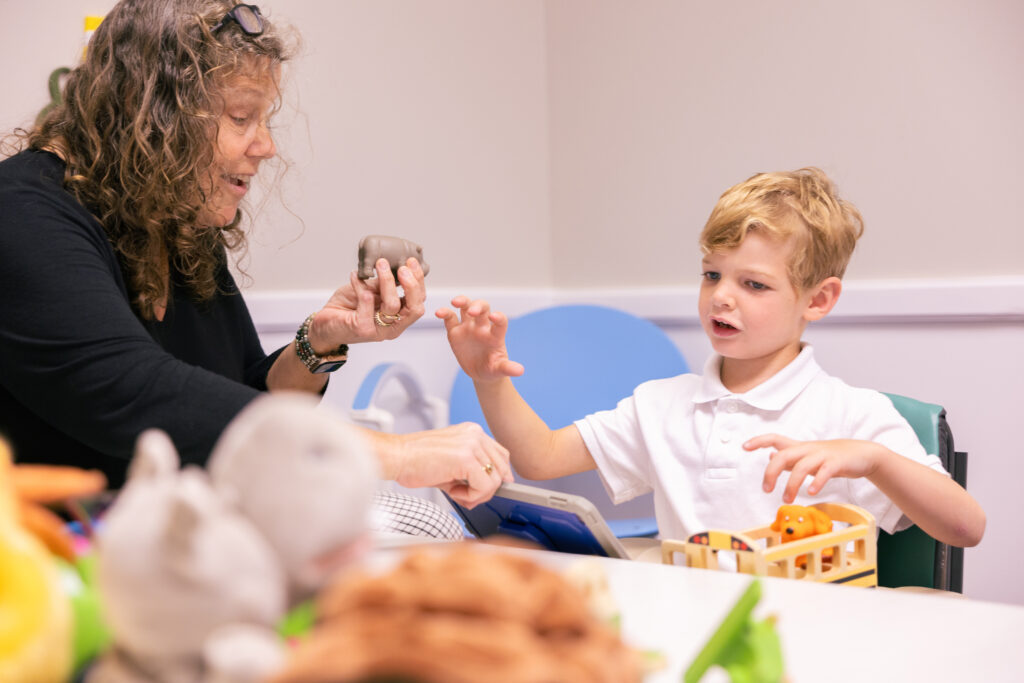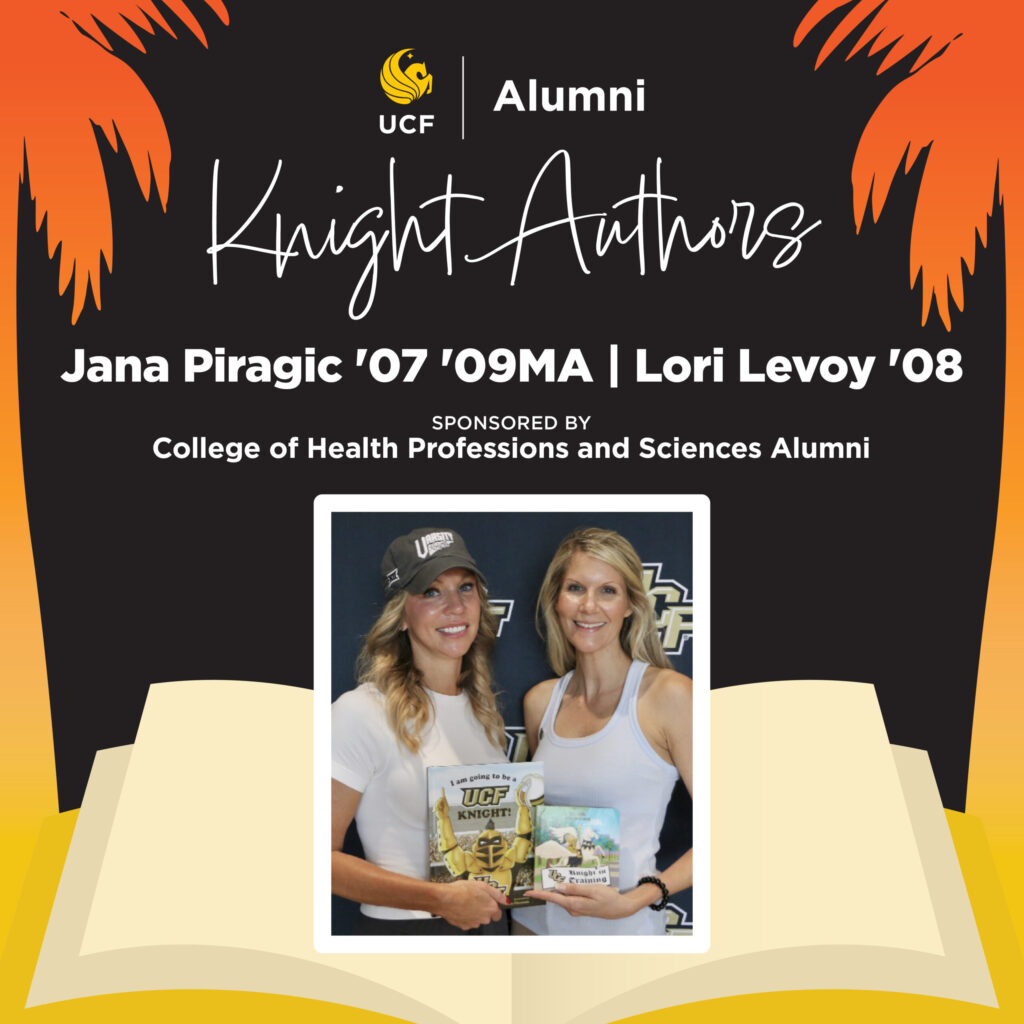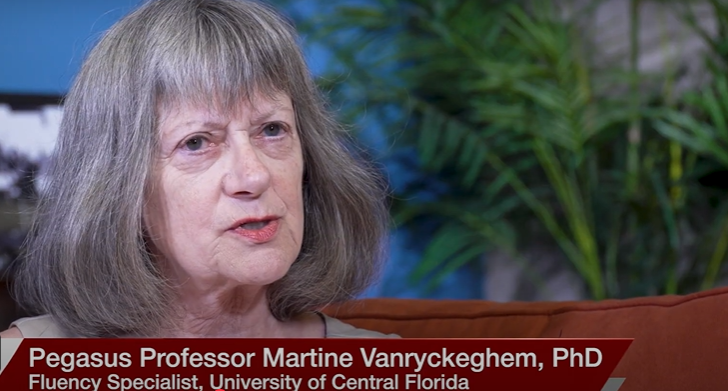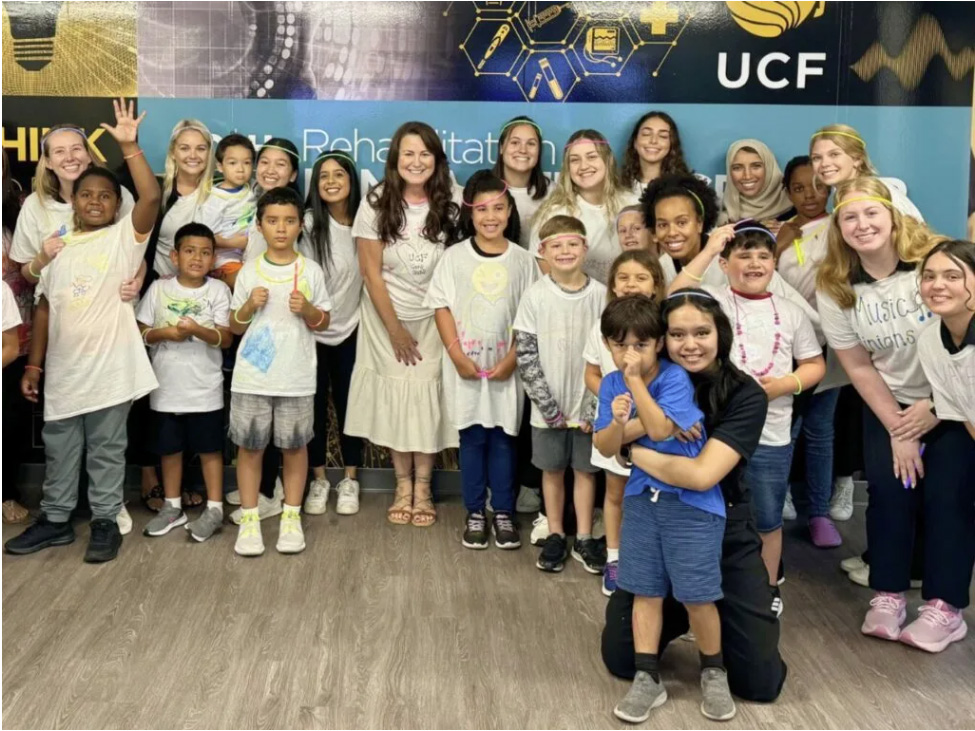Rachel Archambault ’13 ’16 is a speech-language pathologist at Marjory Stoneman Douglas High School in Parkland. And while her goal was always to help improve the speech and communication abilities of students there, she never envisioned that she would also play a role in helping them heal from the shared trauma they experienced as survivors of one of the worst school shootings in history.
Her love for the SLP profession goes way back. She was introduced to the profession by her younger twin brothers. She was intrigued by the clinician who visited their South Florida home each week and motivated her siblings by using candy or games to elicit sounds. She wanted to get in on the fun, so she would sometimes pretend to have a speech impairment just to get the sweets.
Later, Archambault discovered the sweeter side of speech-language pathology as she learned about the broad impact SLPs have on people of all ages.
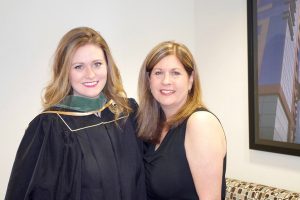
“I saw the difference [the SLP] made in my brothers’ lives, and she also made it enjoyable,” Archambault says. “I knew then that I wanted to be a speech-language pathologist so I could help people like my brothers. I never changed my mind about what I wanted to be when I ‘grew up.’”
Archambault chose UCF after comparing its communication sciences and disorders program with other schools. She especially liked the onsite Communication Disorders Clinic, where graduate students gain experience working with people across the lifespan – from children who utilize assistive technology for communication, to adults with aphasia or Parkinson’s disease.
“With speech-language pathology, I can work with all these different populations,” Archambault says. “But I realized how much I loved working in a school-based setting and, especially, with teenagers who have speech and language needs.”
After receiving her master’s degree and becoming a licensed speech-language pathologist, Archambault moved back to South Florida and accepted a position at Stoneman Douglas in 2016.
Looking back, Archambault says there was nothing out of the ordinary about Valentine’s Day 2018. Students were walking around with giant bears and bouquets. Red hearts and candy — the usual.
But then the unthinkable happened: a gunman opened fire in the school, resulting in the deadliest shooting at a high school in United States history, with 17 killed and 17 injured. At the time of the shooting, Archambault was wrapping up a session with one of her students.
When the fire alarm went off, she was puzzled. There had already been a scheduled fire alarm earlier that morning; perhaps this one had been a mistake?
Archambault, her colleague and the student gathered their things and went outside to check.
“I thought something was off,” Archambault says.
But it wasn’t until she heard gunfire that she realized this was no drill. They went back into their office, grabbing two more students, turned off the lights and locked the door.
Two and a half hours later, police helped them safely evacuate.
Since that time, Archambault and the rest of the school, local community and the nation have been healing from the events of that day.
One of the more immediate, visible therapeutic services implemented at the school was therapy dogs that flew in from across the country. Archambault immediately noticed that the dogs had a positive impact on her school family. Sometimes, her students just need a few minutes snuggling the therapy dogs before they are ready to begin therapy.
“The first day the dogs were here, I just laid down on the floor with them and felt a huge emotional release,” Archambault says. “It made me realize how beneficial they were for our students, but also that I needed a way to connect with the students when the dogs weren’t around.”
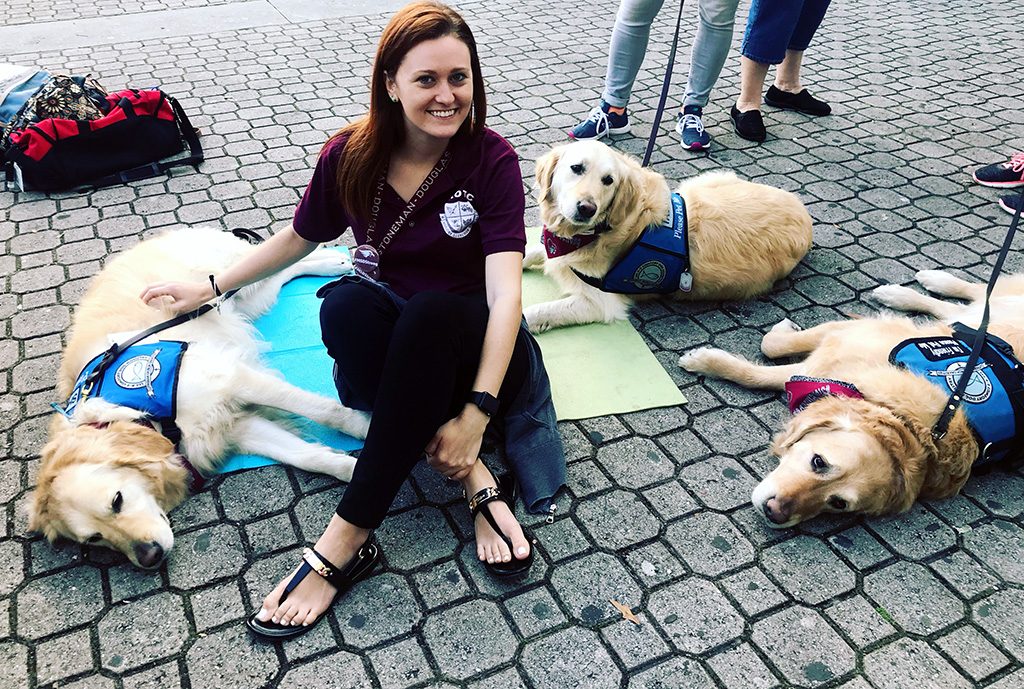
After seeing the enormous benefit that therapy dogs brought to the students and staff at her school, Archambault was moved to become a therapy dog volunteer. She is her dog Dougie’s certified handler and brings him to volunteer opportunities around the community.
“It’s been a big thing in my life,” Archambault says, “And it’s been the best thing for our healing.”
In those dark times after the shooting, Archambault also recalled the compassionate instructors from her days at UCF.

“Charlotte Harvey cared about my physical health and my emotional health,” Archambault says. “When I was a student, Dr. Harvey told me to stop, take a break, and take care of yourself. She was always so caring, just always checking up on me.” Harvey retired in 2017, but the two are still in touch.
Archambault wanted to provide that same comfort to her students and began reading about trauma-informed practice, an approach in human services that assumes a person is more likely than not to have experienced trauma and avoids using any words that could produce a negative memory of the traumatic event.
“I was lost when it came to helping my kids,” Archambault says. The effects from any trauma differ from person to person; how could she deliver the best care as a speech-language pathologist while the entire community was healing from tragedy?
She knew her students were hurting, but she also knew that trauma affects each person differently.
Since the tragedy, she has shared articles about trauma-informed practice with the teachers and administrators at the school, and she has a formal presentation to the entire school scheduled after the holiday break.
Archambault is determined to share what she has learned through this experience to help other SLPs provide the best care to their patients. She has written a few articles and presented to groups about her experience. She has also been invited to speak at next year’s statewide convention of the Florida Association of Speech-Language Pathologists & Audiologists on “Trauma-Informed Post Pandemic.”
She created social media groups (@PTSD.SLP) for SLPs as a resource for information on trauma and how to assist patients who may be struggling with PTSD or mental health issues.
Archambault says this year has brought new challenges – not just the upcoming third anniversary of the shooting, but also the deaths by suicide of two students. And of course, the pandemic.
“A large group of my students graduated recently,” Archambault says. “We had been together for the past four years so that was difficult to see them go. I have students in college or trade school, or who are working full time. They are thriving, and it is a win for me to see my students successful after going through this traumatic experience. It’s a big win for me – but especially for them.”
